After-school activities for teens are an important way to keep teens engaged and entertained, all while providing various benefits such as improved academic performance, improved social skills, better mental health, and more positive associations with schoolmates.
If you need help finding an extracurricular activity and finding a balance in your school work and afterschool activities, read on.
- After School Activities For Teens
- 1. Team Sports
- 2. Individual Sports
- 3. Martial Arts
- 4. Scouts and Guides
- 5. Foreign Language Classes
- 6. Painting Classes
- 7. Join a Book Club
- 8. Explore Photography
- 9. Participate in Food Bank Programs
- 10. Robotics
- 11. Music
- 12. Dance Classes
- 13. Volunteering for a Local Organization
- 14. Taking a Part-time Job or Internship
- 15. Starting a Hobby
- 16. Taking Classes or Workshops Outside of School
- 17. Take part in Governmental Initiatives
- 18. Enroll in School Jobs
- Extracurricular Activities and After-School Programs for Teens
- Solo After-School Activities for Teens
- After School Activities For Middle Schoolers
- Tips For Choosing The Right After School Activities
- The Benefits of Participating in Extracurricular Activities
After School Activities For Teens
Participating in after-school activities helps teenagers improve social skills, gain self-esteem and build valuable skills that can enhance college applications.
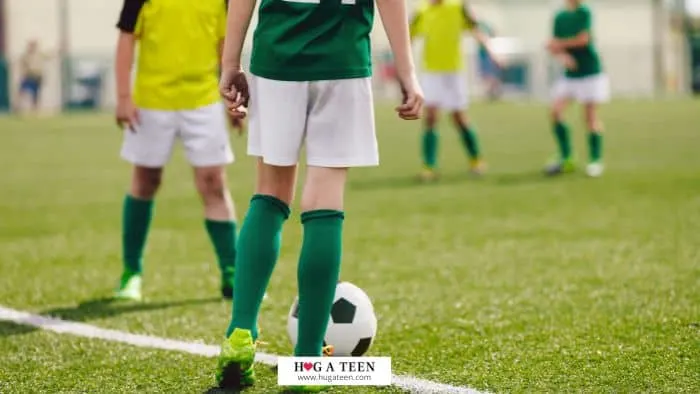
Here are some top after-school activities for teens:
1. Team Sports
Sports are a great after-school activity for teens interested in physical exercise and team dynamics. Sports allow teens to develop their physical strength, agility, and coordination, allowing them to gain valuable teamwork skills.
2. Individual Sports
Some teens excel in individual sports like swimming, rowing, horse riding, athletics, sailing, golf, cycling, ballet, gymnastics etc.
3. Martial Arts
These are codified practices and traditions of combat, typically practiced for self-defense, competition, physical fitness, or spiritual development. Some examples of martial arts include karate, taekwondo, judo, and kung fu.
Participating in martial arts can provide teens with many benefits. It can help them develop physical fitness, coordination, and discipline. It can also teach them self-defense skills and improve their confidence and self-esteem. It can be an excellent way for teens to make new friends and be part of a supportive community.
4. Scouts and Guides
Scouts clubs provide an excellent way for teens to gain valuable skills such as leadership, communication, problem-solving, and team-building that will benefit their future careers—with a strong emphasis on service to the community, scouting and guiding offer teens the chance to participate in hands-on projects that make a difference in their lives and those around them.
5. Foreign Language Classes
Language classes are an excellent way for students to expand their language proficiency in a fun and interactive setting. With language classes, teens can gain the ability to communicate more effectively in both personal and professional contexts.
6. Painting Classes
Painting can be an excellent way for teens to express themselves creatively, learn new skills, and develop their artistic talents. They are typically offered at art schools, community centers, or studios, and they are often taught by experienced artists who can provide guidance and instruction.
In these classes, teens can learn the basics of painting, such as how to mix colors, use different brushstrokes, and create other effects. They can also learn about different styles and techniques, such as realism.
7. Join a Book Club
In a book club, teens can explore new genres and authors, learn about different perspectives and ideas, and share their thoughts and opinions with others. Book clubs can also allow teens to make new friends and be part of a supportive community.
8. Explore Photography
There are many different ways that teens can get involved with photography as an afterschool activity. They can take classes or workshops to learn the basics of photography, such as how to use a camera, compose a shot, and edit photos. They can also join a photography club or organization to learn from more experienced photographers and share their work with others.
9. Participate in Food Bank Programs
Food banks often operate out of warehouses or community centers, and they may have programs such as meal delivery or pantries where people can pick up food to take home. Teens who volunteer at a food bank might help sort and organize food donations, assist with distribution, or help with other tasks.
10. Robotics
It can be a fun and challenging after-school activity for teens interested in science, technology, engineering, and math (STEM). In robotics, teens can learn how to design, build, and program robots and participate in competitions or challenges to test their skills.
11. Music
Music is an excellent after-school activity for teens. It can be a great way to express creativity and an ideal way to destress from the day’s events. Music classes can range from beginning instrumental lessons to more advanced production and composition classes, allowing teens to explore their creativity. Younger children might start with leaning to play the piano and move onto guitar, drums, recorder, or violin.
12. Dance Classes
Dance can be a fun and engaging way to exercise and express oneself. Many people find that taking dance classes helps them improve their coordination, flexibility, physical fitness, and artistic and creative skills. Dance studios provide a supportive and encouraging environment where people can learn, grow, and enjoy the art of dance.
13. Volunteering for a Local Organization
This can be a great way to gain experience, learn new skills, and positively impact the community. Teens can volunteer for food banks, homeless shelters, community centers, environmental organizations, or arts and cultural organizations.
14. Taking a Part-time Job or Internship
This can be an excellent way for high schoolers to gain work experience, learn about different industries and careers, and earn some extra money. Teens can look for part-time jobs or internships in fields that interest them, such as retail, customer service, food service, or healthcare.
15. Starting a Hobby
Teens can use their free time after school to pursue hobbies or personal interests they are passionate about. This could be anything from playing a sport or instrument to creating art or writing to learning a new language or skill.
16. Taking Classes or Workshops Outside of School
Teens can also take classes or workshops outside school to learn new skills or improve existing ones. This could be anything from taking a language class, learning how to code, or taking art or music lessons. These classes and workshops can be a great way to learn new things, meet new people, and have fun.
17. Take part in Governmental Initiatives
These projects or programs include tree planting, mentorship programs, and advocacy which are used to address a specific issue or need within a community or society. These initiatives can provide teens with the opportunity to learn about important issues, gain valuable experience, and make a positive impact on their community.
18. Enroll in School Jobs
These jobs can provide teens with valuable work experience and be an excellent way to earn extra money. Some examples of school jobs include working in the school cafeteria, library, or office or assisting with administrative tasks. School jobs can be an excellent way for teens to learn about different industries and careers and gain valuable skills.
🤓Suggested reading: What To Do When Bored In Class
Extracurricular Activities and After-School Programs for Teens
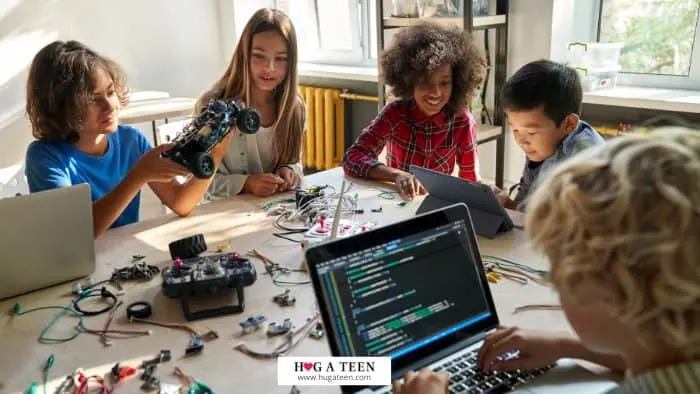
There are various types of extracurricular and after-school activities that teens can participate in. Most schools will offer school clubs that students can join and participate in on school premises.
Some of these include:
1. Sports Clubs
Participation in team sports like soccer or basketball can help teenagers develop teamwork, leadership, and physical fitness skills.
2. Individual Physical Activities
Individual activities like swimming, athletics, or martial arts are also fun after-school activities for kids who are not interested in team sports.
3. Academic and Learning Clubs
These can include activities like a debate club, a coding club, or a science club. These clubs can help reinforce academic learning and stimulate intellectual curiosity.
4. Life Skill Programs
Life skills classes can provide students with valuable skills for independent living and success in the real world. Life skills classes may cover various topics, such as budgeting and financial planning, cooking and nutrition, time management, conflict resolution, and communication.
These classes can be helpful for students of all ages, as they can help them develop the skills and competencies they need to navigate the challenges of daily life and achieve their goals.
5. STEM Clubs
STEM clubs focus on science, technology, engineering, and mathematics and help teenagers enhance critical thinking and problem-solving skills.
6. Arts Clubs
Arts clubs allow teenagers to experience creativity, enhance their artistic abilities and gain confidence in their skills. This can include activities like painting, pottery, or even DIY crafts. These activities can also provide a therapeutic outlet for teens.
7. Community Service Projects
Participating in community service projects can help teenagers develop empathy, compassion, and a sense of social responsibility. Children learn and grow through enrichment activities outside the confines of classes and homework.
8. Drama Club
Drama clubs give teenagers an opportunity to express themselves, boost their confidence, and build a range of skills, including communication and public speaking.
After-school programs and activities offered by schools and community centers provide teenagers with an opportunity to pursue their interests, socialize with peers and develop important skills. Schools across the United States offer extracurricular activities such as sports clubs, drama clubs, STEM clubs, and book clubs. Community centers also offer a range of activities, including community service projects, arts clubs, and community learning centers.
9. Music Club
Playing a musical instrument or joining a music club can offer numerous benefits to teens. It enhances cognitive abilities, boosts self-esteem, and fosters creativity. It also improves discipline and time management skills through regular practice. Moreover, it provides a platform for social interaction and collaboration with peers.
Many schools and community centers offer after-school programs at little or no cost, making them accessible to all teenagers. These programs provide a safe and structured environment for teenagers to learn new skills, build self-esteem and engage with their community.
Participating in after-school programs and activities has been linked to improved academic performance, social skills, and physical health.
There are also after-school programs that require a fee, such as specialized sports programs or music lessons. However, these programs often offer unique opportunities and can lead to future career paths or scholarships.
Moreover, colleges look for extracurricular activities when reviewing applications, so joining such activities early on can help boost a student’s college application.
Solo After-School Activities for Teens

After-school hours provide an excellent opportunity for teenagers to engage in organized, productive activities that do not involve screens. Engaging in solo activities can be a great way for teens to spend their free time while also developing valuable skills and exploring their interests.
1. Individual Sports
There are many individual sports that teens can participate in, including athletics, golf, swimming, martial arts, yoga, tennis, rowing, horse riding, hiking, ice skating, gymnastics, running, and cycling.
2. Music, Arts, Crafts, Cooking
Learning a new skill like drawing or painting, cooking, baking, or learning to play a musical instrument are all great solo after-school activities for teens.
3. Online Courses
Coding courses are one such activity that can be done online from the comfort of home. With a growing demand for technology skills, teens can develop their coding skills through online courses and platforms.
Another option is podcasts, which can help teenagers stay up to date on current events or learn about different topics and interests.
Joining a STEM club can also provide an opportunity for teenagers to learn and work on projects where they can develop critical thinking and analytical skills. In addition to STEM clubs, teens can also engage in other activities like building websites and games or starting blogs. These activities can help them learn practical skills, such as web development, design, and writing.
Overall, there are many solo after-school activities that teens can engage in. These activities can help them develop valuable skills, explore their interests, and stay away from screens while also having fun.
After School Activities For Middle Schoolers
After school activities for teenagers are a great way for middle schoolers to socialize, grow their skills, and explore their interests. The activities should be engaging, hands-on, and tailored to the interests and experiences of individual and small groups of middle schoolers.
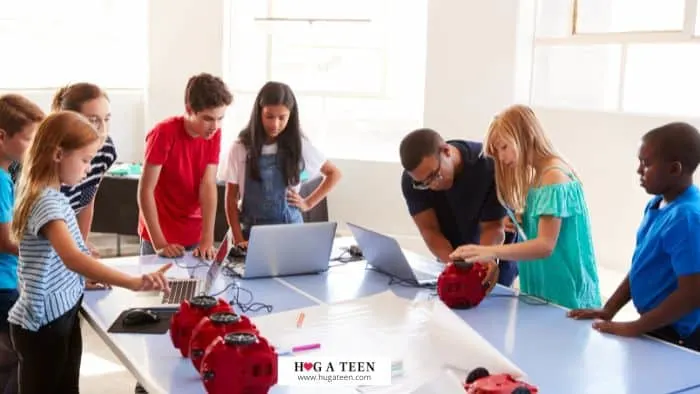
The key is finding activities that align with the high schooler’s interests and goals. This will help them stay engaged and motivated and provide valuable experiences and skills to benefit them.
1. Art Studio
This is a space where students can work on art projects and explore their creativity. This could include a variety of mediums, such as painting, drawing, sculpture, or photography.
2. Sciences/ STEM club
Join a STEM club or take STEM classes. This can help middle schoolers learn about science, technology, engineering, and math and develop problem-solving skills. STEM activities can include building robots, coding, or creating science experiments. Middle school students enjoy hands-on activities that challenge their critical thinking and problem-solving skills.
3. Yoga Club
Join a yoga club or take yoga classes. This is an excellent way for middle schoolers to stay active, improve their flexibility and strength, and learn mindfulness and relaxation techniques.
4. Obtain Culinary Skills
Join a cooking club or take cooking classes. This is an excellent way for middle schoolers to learn how to prepare healthy and delicious meals and develop their culinary skills.
5. Join a Film Club
In a film club, members might watch a different film each week or month and then discuss the movie afterward. This can help middle schoolers learn about other filmmakers, actors, and techniques and gain a deeper understanding and appreciation of the art of film.
6. Enroll in Community Service
Community service programs involve volunteering for local organizations or community service projects. This is an excellent way for students to give back to their community and gain valuable experience.
7. Homework Assistance Program
This program gives students extra help and support with their homework, such as tutoring or study skills workshops. This is an excellent way for students to improve their academic performance and stay on track with their studies.
8. Student Council
This is a group of students elected by their peers to represent the student body and work on projects and initiatives that benefit the school community. This is an excellent way for students to develop leadership skills and positively impact their school.
9. Drama Club
This entails a group of students who come together to perform plays, musicals, and other productions. This is an excellent way for students to develop their acting, singing, and performance skills.
10. Traditional Sports
Sports clubs are an ideal activity for middle schoolers who like physical activity. They offer a wide range of sports, from soccer and basketball to baseball and volleyball.
11. Environmental Club
This group of students is interested in environmental issues and working on projects to promote sustainability and conservation at their school and in their community.
12. School Newspaper Club
This group of students produces the school newspaper, writes articles, takes photos, and designs layouts. This is an excellent way for students to develop their writing, reporting, and journalism skills.13.
13. Chess Club
Joining a chess club can greatly benefit middle schoolers. It enhances their problem-solving skills, promotes strategic thinking, and improves concentration. Additionally, it fosters patience and sportsmanship as they learn to win and lose gracefully. It’s also a great way to make new friends with similar interests.
Tips For Choosing The Right After School Activities
Choosing the right after school activities for your child can be a difficult task. It is essential to identify your child’s needs, skills, and interests to find the perfect activity.
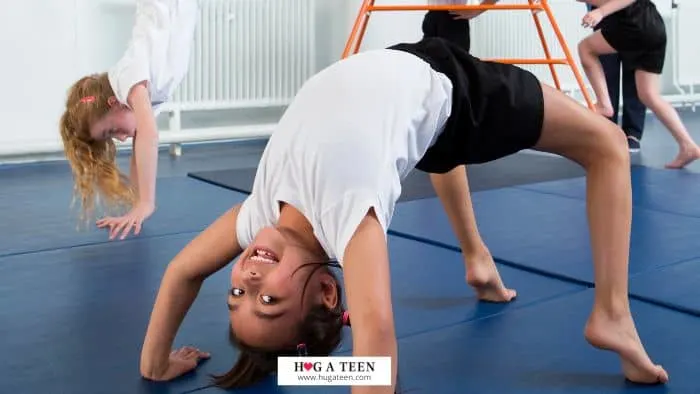
Here are some tips to help find the right after school activity:
1. Identify your Child’s Needs, Skills, Interests and Passions
The most crucial factor to consider is the student’s interests and passions. This will help ensure that they choose activities they are genuinely interested in and engaged in, which will help them stay motivated and committed.
🤓 Suggested reading: Helping Your Teenager Find Their Passion
2. Explore Different Activities
It’s essential to research the different after-school activities available at the school or in the community. This will help the student understand the range of options and choose the activities that align with their interests and goals. Encourage your child to try different activities to find what they enjoy. They might find a hidden talent or passion they didn’t know they had.
3. Look for Activities Available in the Community
Keep an eye out for local community activities and programs. It’s an excellent opportunity for your child to meet new people and make new friends.
4. Time Commitment and Schedule
Considering the time commitment and schedule when choosing after-school activities is essential. The student should choose activities that fit into their schedule and don’t interfere with schoolwork or other obligations.
5. Cost and Availability of Resources
Some after-school activities may require specific resources or equipment, such as art supplies, musical instruments, or sports equipment. It’s essential to consider these resources’ cost and availability and ensure the student has access to what they need.
6. Advice and Recommendations
Talking to teachers, counselors, and other students for advice and recommendations when choosing after-school activities is a good idea. They can provide valuable insights and guidance based on their experiences and knowledge.
7. Be Open-Minded
Allow your child to express their interests and be open-minded to their choices. Sometimes the most unlikely activity can be the perfect fit for them.
8. Communicate
Encourage your child to communicate when they feel overwhelmed or need a break. Remember, downtime is just as important as participating in activities.
Choosing the right after school activity is all about finding the perfect balance for your child. By following these tips, you can ensure your child is engaged, happy, and thriving in their after school activities.
The Benefits of Participating in Extracurricular Activities
After-school activities for teens are more than just a way to keep them busy once the school day ends. These activities provide a platform for teens to explore their interests, develop new skills, and interact with their peers in a structured yet enjoyable environment.
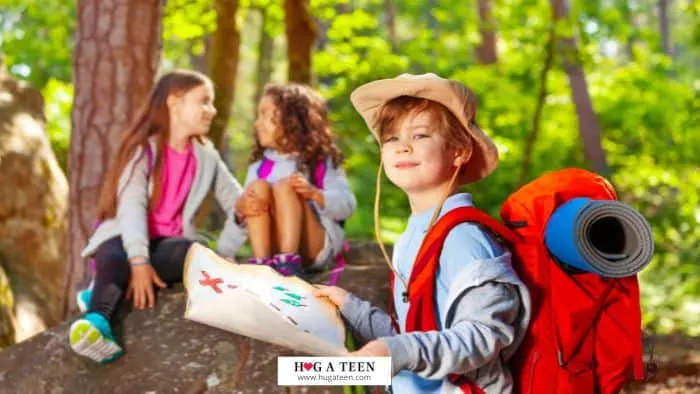
Understanding the Importance of After-School Activities for Teens
Participating in extracurricular activities can bring many benefits to teenagers, such as skills development, self-esteem, positive habits, and academic performance.
Engaging in different activities outside of school can help teenagers explore their interests, develop new skills and interests, and improve their social relationships.
Skills development is one of the primary benefits of extracurricular activities. Different activities offer a wide range of opportunities, allowing teenagers to learn new skills and sharpen existing ones.
For example, participating in STEM clubs can improve problem-solving skills and critical thinking abilities, while drama clubs can help develop communication and presentation skills.
The Benefits of After-School Activities:
1. Improvement of Social Skills
Activities that involve teamwork or group participation can help teens improve their communication and interpersonal skills. They learn to work collaboratively, resolve conflicts, and build relationships with their peers.
2. Enhancement of Academic Performance
Studies have shown that students who participate in after-school activities often perform better academically. These activities can help reinforce what is taught in school and provide opportunities for practical application of knowledge.
3. Development of Interests and Talents
After-school activities provide a platform for teens to explore and nurture their interests and talents. Whether it’s sports, arts, or coding, these activities can help teens discover their passions.
4. Building Self-Esteem and Confidence
Extracurricular activities also offer great opportunities to boost self-esteem. When teenagers participate in activities they enjoy, they build confidence and feel better about themselves. It also gives them a sense of accomplishment and pride in their achievements.
5. Promotion of Healthier Lifestyles
Physical activities like sports or dance can help promote a healthy lifestyle among teens. It encourages regular exercise and can instill good habits that last a lifetime.
6. Positive Habits
Positive habits are another benefit of extracurricular activities. Participating in activities teaches teenagers about commitment, time management, and responsibility. They learn to prioritize their time, set goals, and follow through on their commitments.
7. Positive Use of Time
Working parents often require supervision for their children after school hours. These extra-curricular activities provide and safe place for children to spend their time.
8. Decreasing the Academic Achievement Gap
After-school activities can strongly benefit a student’s socio-emotional health and academic performance. Extracurricular activities, after-school opportunities for academic aid, and summer enrichment programs are important contributors to academic success and personal growth.
Overall, participating in extracurricular activities can have long-lasting and positive impacts on a teenager’s life, including skills development, self-esteem, positive habits, and academic performance.
🤓 Suggested reading: Life Hacks For High School Students
Finding the right balance with extracurricular activities
Finding the right balance with extracurricular activities is crucial for teenagers. While participating in extracurricular activities offers many benefits, it’s essential to ensure that academics aren’t neglected.
Juggling academic responsibilities and extracurricular activities can be challenging, but with proper planning and time management, it’s possible to find the right balance.
Is it Okay to Quit an Activity?
Participating in extracurricular activities is an important part of a teenager’s life. It not only adds to their skillset but also helps them develop a sense of discipline and routine. However, there are times when it becomes necessary to quit an activity. It could be due to a lack of interest or time constraints. It can be a tough decision, but it is important to know when it’s okay to quit an activity.
Quitting an activity should not be seen as a failure. It is a healthy decision that requires careful consideration. As a parent or guardian, it is important to encourage teenagers to make this decision for themselves. It is crucial to guide them on how to approach it, be honest with the coach or teacher, and do it respectfully. Quitting the activity should not be done impulsively or as a reaction to a bad experience.
We should acknowledge that quitting an activity can also create a valuable opportunity for teenagers to learn the art of decision-making and personal growth. Encouraging teenagers to try new activities can give them a sense of independence and confidence and help them figure out what they are passionate about.
In conclusion, after-school activities for teens offer a variety of activities that go beyond regular school time. From high-energy sports to engaging board games and scavenger hunts, these activities provide an excellent platform for youths to enhance their cognitive and academic skills. Participating in these activities, as supported by the Afterschool Alliance and the American Journal of Community Psychology, can lead to positive youth development.
Activities like playing musical instruments or joining a chess club can improve logic skills, while community-based organizations offer opportunities for teens to benefit from leadership skills. Even fun activities and science experiments like playing with ice cubes can be turned into a learning experience.
Extracurricular participation is a crucial part of pre-teens and teenagers’ development. It can influence their career options and even their college admissions process. Successful programs like summer learning programs and academic afterschool programs cater to a pool of children, including elementary school-aged children.
So, whether it’s the day after school or during summer programs, engaging in these activities can provide a wealth of benefits. As the Journal of Youth and the Forum for Youth Investment suggests, these experiences can contribute significantly to career preparation. So, let’s encourage our teens to step away from video games and explore these enriching opportunities.
